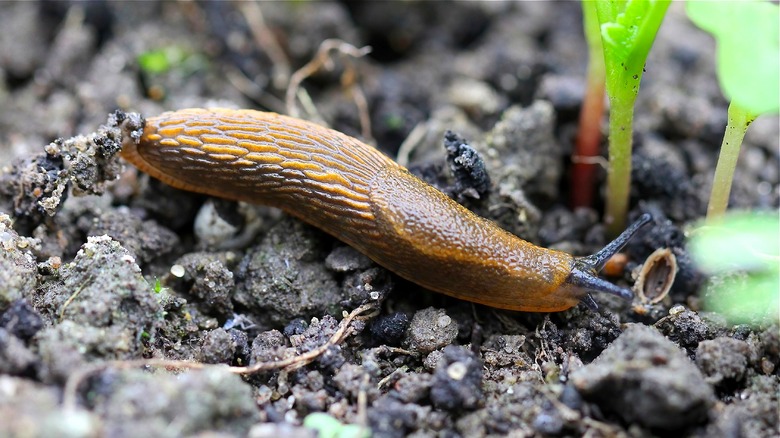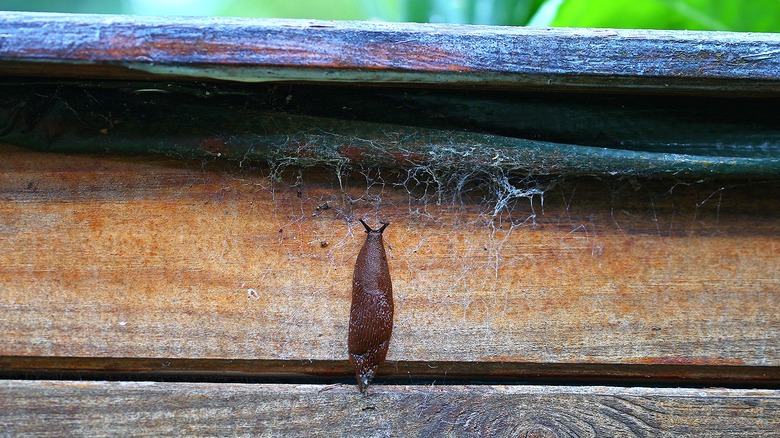The Raised Bed Material Mistake That's Attracting Slugs To Your Garden
Gardeners have long favored wooden garden beds for their natural, rustic appearance and flexibility when it comes to design. However, there's more to consider than meets the eye when choosing wood as a material for your raised garden beds; doing so may very well be a mistake — if you want to keep slugs at bay, that is. A significant drawback of wooden garden beds is their tendency to attract slugs.
Slugs are notorious garden pests, and wood offers them a cool, moist environment they find inviting. A wooden garden bed can provide slugs with a perfect place to hide during the day (hanging out around the edges underneath). Then, once night falls, slugs can safely emerge to feast on the plants inside the raised bed. Once they arrive, these slimy creatures can easily disrupt a garden's harmony, munching on precious plants and ruining future harvests.
What's more, raised wooden garden beds are susceptible to rot. Wood is organic, and when exposed to moisture, it can break down over time, making it even more attractive to slugs. Even with pressure-treated or rot-resistant wood, constant exposure to damp soil and weather can lead to deterioration.
Garden bed material alternatives to wood
When using wood for raised garden beds, proper care and regular maintenance are key. But even with such attention, the life span of untreated lumber is relatively short — about three to five years. Fortunately, there are excellent alternatives to wooden garden beds that offer you several advantages, including being less attractive to slugs. Some material options you might consider include concrete, metal, composite lumber, and stone or brick.
Sturdy and long-lasting, concrete blocks (and hollowed cinder blocks) are popular garden bed materials. They're resistant to rot and various pests, including slugs, and their neutral gray color complements most garden designs. Metal garden beds, meanwhile, made with galvanized steel or aluminum provide a durable, sleek option. They won't rot, promote fungal growth, or attract pests. They're also lightweight and easy to assemble.
Then there's composite lumber made from a blend of wood fibers and recycled plastics. This material offers the aesthetic appeal of wood without the rotting issue, and it's resistant to pests and lasts for years. For a timeless and natural look, recycled locally sourced stone or reclaimed brick are solid choices. They're also resistant to rot and pests, like slugs, and add a touch of elegance to your garden.

